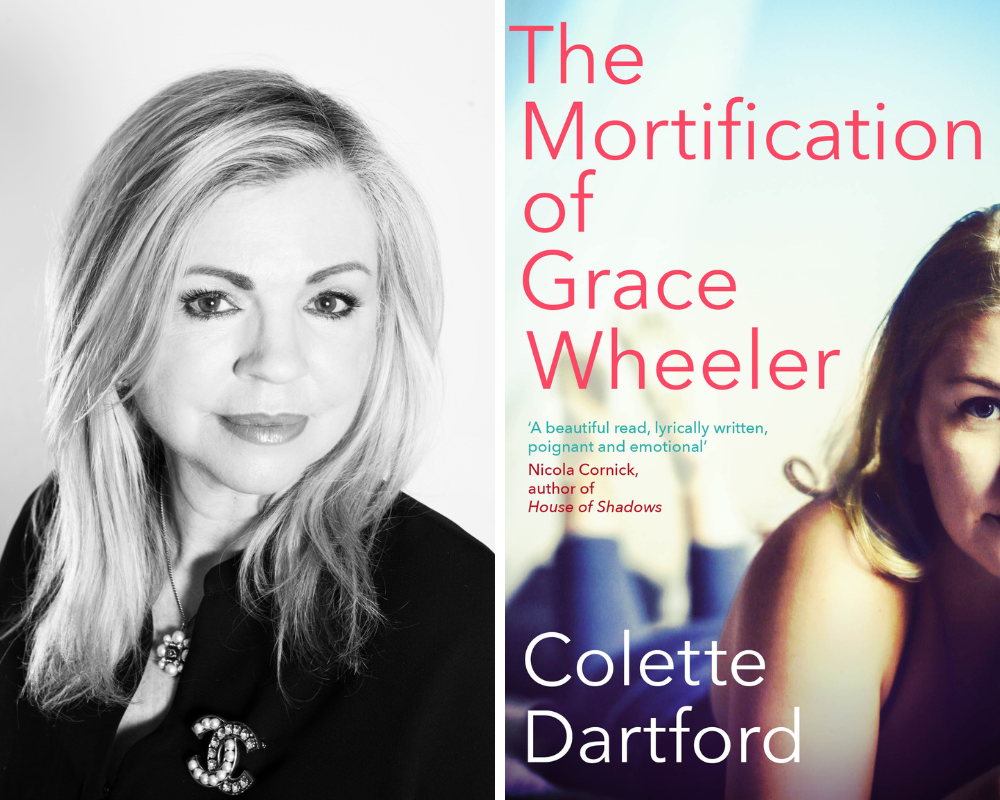Colette Dartford on writing believable characters

As a reader I have a hundred-page rule, which means that if I’m indifferent to the main characters and what may become of them at that point, I don’t read any further. Some people find this heretical (two members of my book club, for example) but honestly, what’s the point? There are so many wonderful novels out there, and with so little free time, I feel entirely justified cutting my losses and moving on.
It’s quite a different matter, however, when I look at it from the other side, as a writer. Then I am acutely aware that the characters I create must be complex but believable, flawed but likeable, unpredictable but relatable. Not so easy now, I tell myself, staring at my laptop screen, longing for inspiration. The namesake of my latest novel, The Mortification Of Grace Wheeler, is a case in point. Grace is conventional, undemanding, not one to make a fuss. The danger in writing such a character is that initially they may come across as dull and uninteresting. My task is to peel back the layers of her apparent ordinariness and expose the contradictions that swirl beneath. For example, Grace’s husband, Cal, is much older than her and the age gap has become a gaping chasm. A lifelong Tory who voted for Brexit, she considers him staid and old-fashioned, yet when their son introduces his first girlfriend, an exotic creature with multi-coloured hair, a nose stud and tattoos, it is Grace who is quietly shocked and disapproving. Cal finds her an absolute hoot. Similarly, having been raised by a devoted single mother who often struggled to make ends meet, Grace prizes the stability of her twenty-year marriage and the security of her modest but comfortable home.
Why then, does she risk everything by having an affair with a younger man? The author’s challenge is to convince readers that this out-of-character behaviour is believable, in this case, by creating a profound change in her domestic circumstances. Her only son has left for university and the empty nest has thrown a spotlight on the staleness of her relationship with Cal. She is lonely and dissatisfied, dreading a future with her ‘almost elderly’ husband. So when a good looking millennial makes it clear he is attracted to her, for the first time in her life, instead of doing the right thing, she does the opposite.
Earlier I said that characters should be flawed but likeable, unpredictable but relatable. In some ways this was more difficult to achieve with Cal. I wanted readers to empathise with Grace, to see Cal through her eyes – old fashioned and reserved, unsympathetic to her needs – so how could I make him likeable too? My agent underscored the problem when I first sent him the manuscript. Give him some redeeming features, he told me, otherwise no-one will believe she married him in the first place. Good advice. I redrafted, highlighting Cal’s qualities as a father, the sacrifices he made for his three daughters by a previous marriage, the way he engaged with their son’s spirited girlfriend, delighting in her passionate defence of viewpoints far removed from his own. To quote Grace’s best friend, ‘Human nature is multi-faceted, and it’s very rare for someone to be completely good or completely bad. We’re all a complex mix of both……Even the Kray twins loved their old mum.’
And that is the challenge in writing characters. If you make them either saints or devils, they’re not really believable. It’s people’s complexity that makes them interesting, however ordinary they may appear.
The Mortification of Grace Wheeler is published by Whitefox on 18 August 2022


